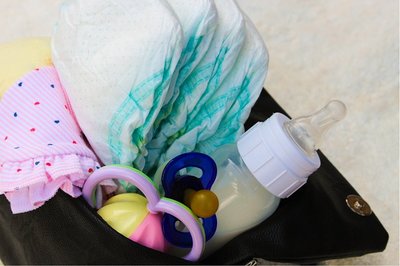Marie would love to work in the field she is qualified in, and provide for her child, but as she is waiting for a decision on her asylum application she faces many difficulties on a daily basis.

Essential baby items that many take for granted are a luxury for Marie, and so many asylum-seeker mothers in Cyprus.
How is it to be an asylum-seeker in Cyprus? How do these people live? The first nine months they are not allowed to work and thereafter many can’t work, either because they cannot find a job or cannot work in the very limited sectors of the economy they are allowed by law to work, such as farms, animal husbandry, garbage collection and the like. Others have serious health conditions preventing them from being able to work. Is the social assistance they receive from the State adequate to ensure a dignified living for the health and subsistence of these individuals and their families? Who are these people and what do they dream of for the future?
In May we launched a series of stories to answer most of the above questions and showcase the reality of the daily life of some of these people. Today we continue with the case of Marie, an asylum-seeker from Cameroon Marie is a young mother of three children, who studied auto-mechanics in her native Cameroon and would love to work in an auto body repair shop. She is currently living in Nicosia in a shared house with her eight-month-old daughter and two other young mothers, and waiting for a decision on her asylum application. Her other children are in the care of her younger sister back home in Yaounde.
When she arrived in Cyprus she was alone and pregnant, and even had to sleep rough for a couple of weeks until she was housed at a state care home for the elderly and disabled, where she stayed for three months and given food and shelter, but no other form of subsistence. She was helped by the charity Caritas to find more suitable accommodation in Nicosia, and to register for the government’s coupon system.
Since the birth of her daughter, her wish to become self-sufficient and be able to work and provide for her child are stronger than ever. “I want to be able to work,” she says, “to have a job that enables me to be independent and manage my life. I would use my first salary to buy my daughter new clothes.” While her accommodation is now dignified, and she enjoys the companionship of her housemates, Marie has to rely solely on donations for clothes for herself and her baby.
Even though she is sharing with two other women and their children, the EUR100 monthly rental allowance they each get is not enough to pay for the rent; they have to use their monthly cash allowance to make up the difference in the cost of the rent, and to cover the costs of utilities. “This leaves almost nothing for food and for pampers and other necessities for my baby,” says Marie.
Regarding the coupon system, Marie explains that the amount is inadequate to get through the month, but there are other problems as well. “There are often delays in receiving the monthly allowance; until the cheque comes, which can take weeks, I have nothing to eat and no kind of support. The shops where the coupons are accepted are very expensive and do not have all the items I need for my baby, like cream for her skin condition, nappies, or formula.” The money left after paying the rent and bills is insufficient to be able to make cash purchases from other supermarkets or pharmacies. When the coupons finally arrive, they also have an expiry date, which means they have to be used up all at once, or lost, which does not enable a woman in Marie’s situation to plan ahead, let alone save up from one month to the next. Additionally, Marie explains that the coupon system means she often loses several Euros per purchase due to the fact that the shop owner cannot give her change – therefore coupons are lost in purchases made that are not the exact amount. “I often feel uncomfortable shopping with coupons,” says Marie. “The shop-owners suspiciously follow me around the shop, and often speak to me in a derogatory manner.”
Marie expresses her gratitude to the charities and individuals who have helped her, and dreams of the day she can work and provide for herself and her family. Until then she is dependent on the welfare system for EUR320 per month to survive, and on the goodwill and compassion of strangers and donations from charities.
*name changed for protection reasons
Μοιράσου το στο Facebook Μοιράσου το στο Twitter